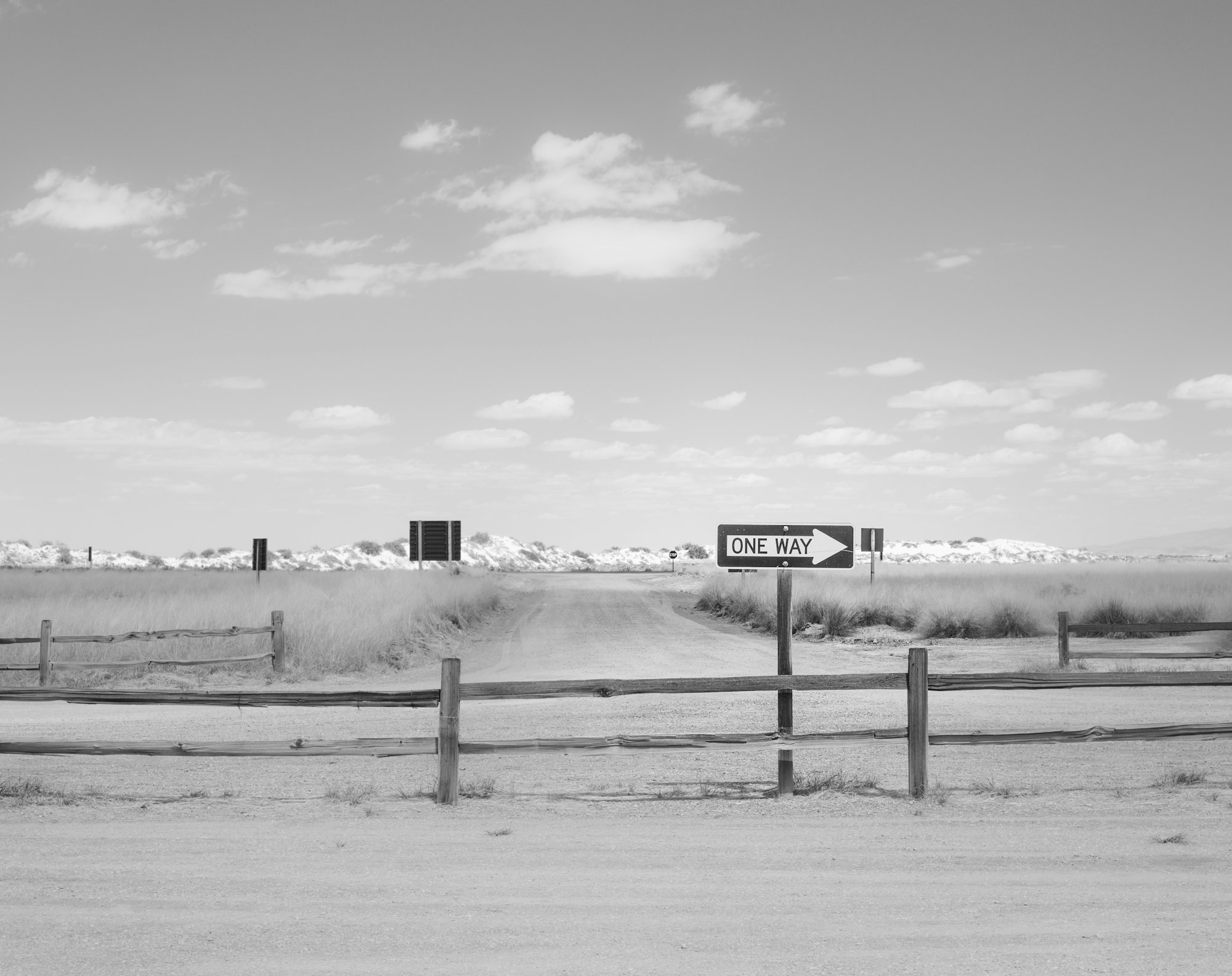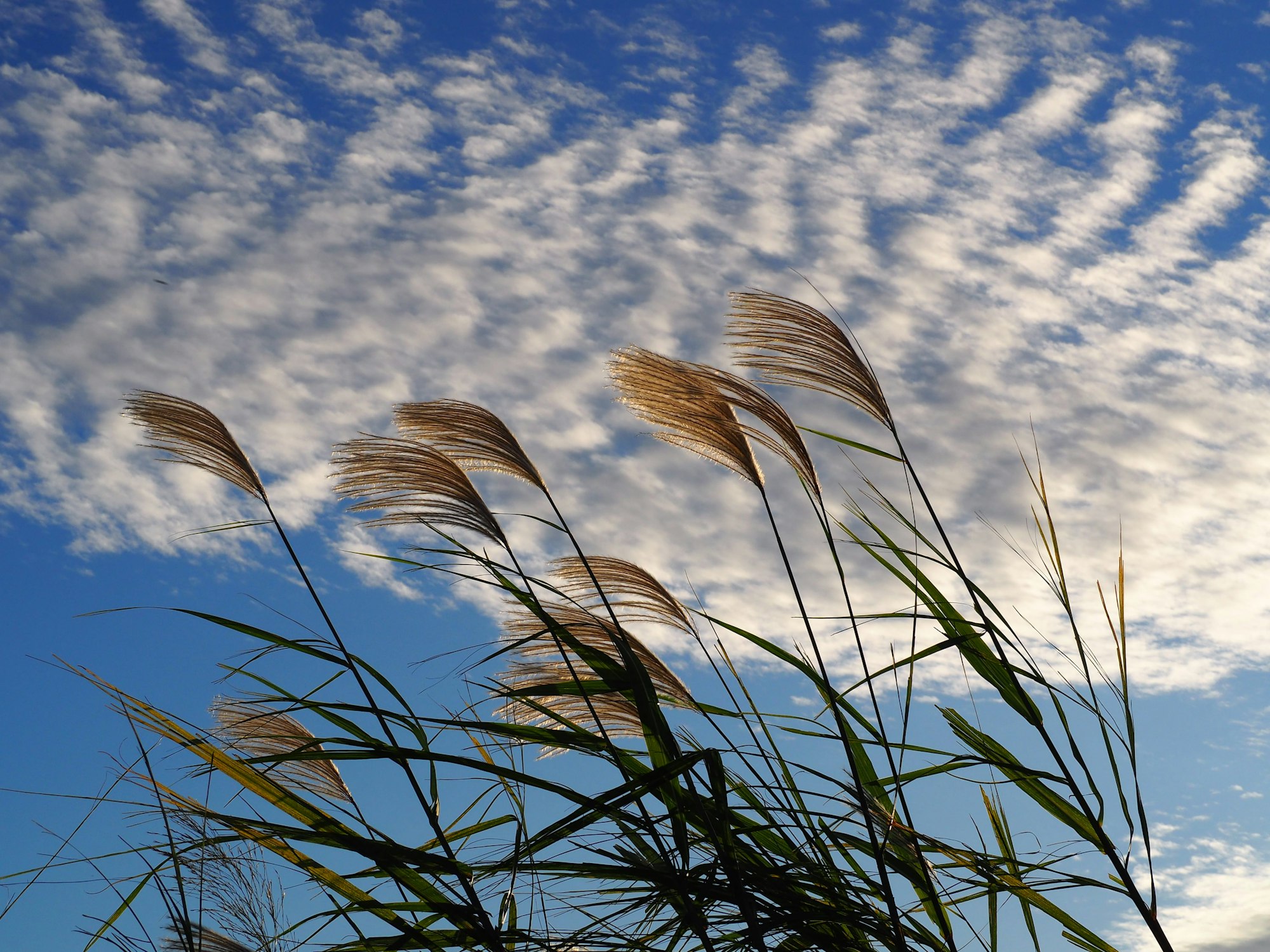William Bortz, "October, and Everything is Breathing;" Ted Kooser, "Snow Fence"
I can imagine the anxiety of loss as a form of unfreedom, of constraint. It feels like being robbed of chances for deeply shared joy and happiness.

Greetings! Thank you again for your support
I'm presenting two poems to you which have me desperately wanting to go to an art gallery. I want to stare at a gelatin print of a skyscraper or bridge and wonder why it appeals.
—sigh—
I know you'll find both poems below create powerful, striking images with a few well-chosen words.
Today I spent my time reading Olivia Messer's report on how trauma has been hurting reporters deeply. There's a lot to say about this topic, but what she has is comprehensive, haunting, and difficult to grapple with. By simply reporting what people are going through, she's showing how fundamentally broken American society is.
William Bortz, "October, and Everything is Breathing;" Ted Kooser, "Snow Fence"
The presence of the Lord: a beam of light, announcing a pregnancy prayerfully. A burning bush, wherein nothing is harmed.
If "only a noise," it makes a certain sense divinity would be “tall, dry reeds battering / the wooden fence keeping / the leaping prairie / within its own riot.” It’s not a gentle sound, to be sure. Repetitive, loud noises at the wrong time can be infuriating.
But in this case, there’s just wind, reeds, a day, a fence. The landscape, in its totality, creates the sound. The sound demands an attention which pulls in a listener. Growing up, I got used to birds chirping loudly outside my window. It didn’t stop me from reading textbooks cover to cover. I learned to work around the birds, at times only listening to where I was.
October, and Everything is Breathing (from "The Grief We're Given"--link to the author reading) William Bortz God— are you only a noise tall, dry reeds battering the wooden fence keeping the leaping prairie within its own riot can one breath from the eternity of your tongue calm a country if so, could you recite my name
***
A gentleness permeates the image, but it doesn’t erase markers of struggle or darkness. The reeds batter the fence; the “riot” of a “leaping prairie,” contained, causes this forceful reaction. The plea of the poem is for peace: “can one breath from / the eternity of your tongue / calm a country / if so, could you / recite my name.”
I can imagine the anxiety of loss as a form of unfreedom, of constraint. It feels like being robbed of chances for deeply shared joy and happiness. I’m not thinking here of romantic thrills or career achievements. Nor creepy visions of commanding the attention of someone you barely even know.

It’s something more like losing a dear friend, and realizing that a dialogue you would have had is fading away. That it’s hard to remember how you both approached the world, thought it together, and in a way made it.
It’s something like coming to terms with neglect and abandonment. It’s hard to remember who one is when others barely see you. All these declarations about oneself, one’s purpose, lying around unheard. Learning to listen to yourself entails acknowledging the injustice. This world does attack others until they feel they have no place in it.
***
Will God “recite my name?” Can divinity learn such a thing? This, like the wind tossing the reeds, contains its own answer. The peace needed, for an individual, is of a stranger order than calming a country. The wind will die down at some point. But the restlessness, for us, is in how we see. The landscape serves as a full image, completed by the noise.
***
Ted Kooser’s “Snow Fence” also focuses on an image of a landscape. It too recalls personal pain:
Snow Fence (from "Sure Signs") Ted Kooser The red fence takes the cold trail north; no meat on its ribs, but neither has it much to carry.
A fence against “the cold trail.” I imagine thin red stakes, loosely connected by wire, standing in snow with a gray sky overhead.
In an art gallery, it would be a striking photo. Too stark for corporate acquisition, but not recognizably autobiographical.
Here, Kooser’s personification of the fence establishes his identification with it. Taking “the cold trail,” alone. “No meat / on its ribs:” even those of us in more privileged, comfortable situations remember when we were starved. —I still can’t get over how I wasn’t treated as real.—

Not much to "carry:" this, I believe, requires more comment. All of us have our stuff. Typically, the worse we’re doing emotionally, we either 1) get more stuff or 2) blame ourselves for having too much.
I don’t think either really comprehends how we might see ourselves as a fence. Neither our physical condition, nor that of the fence, is necessarily relevant.
More relevant, well, is our feelings of relevance. I know I’m not alone in trying to see my life as distinct periods, each one clearly distinguishable and separable from the other. “Good fences make good neighbors,” indeed.
If I can’t make distinctions in my own life, it’s very easy to think failure and only failure. Distinctions entail being able to identify an achievement. To see something as worthwhile or good. Some incredibly brave people have spoken about how difficult it is for them to see themselves as anything at all. How hard it can be for them to experience meaning that’s convincing. Dickinson’s “I dwell in Possibility” speaks to this, indirectly. Even in possibility there must be “Chambers as the Cedars / Impregnable of eye.” Weight that you can’t see past. Things you can’t dismiss.
***
It was a joy writing about these two poems. They’re exceptionally gentle, and that alone reminds me how to deal with pain. In both poems, the outdoors is not terribly subtle. The images given are singular and precise, but it isn’t hard to imagine, say, both the reeds and fence swayed by the wind. Not like a .gif or animated photo, but as real, enduring objects which reflect our presence in the world. That we were here, are here, no matter what we say to ourselves.
